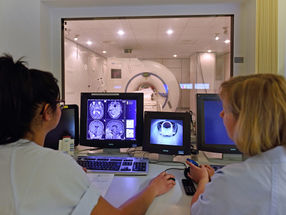Gene that improves quality of reprogrammed stem cells identified by Singapore scientists
Provides 'a better inkling of what we might aim for before differentiating iPS cells to clinically useful cell types'
Advertisement
In Nature, scientists at the Genome Institute of Singapore (GIS), report that a genetic molecule, called Tbx3, which is crucial for many aspects of early developmental processes in mammals, significantly improves the quality of stem cells that have been reprogrammed from differentiated cells.
Stem cells reprogrammed from differentiated cells are known as induced pluripotent stem cells or iPS cells. By adding Tbx3 to the existing reprogramming cocktail, GIS scientists successfully produced iPS cells that were much more efficient in recapitulating the entire developmental process.
The capability of iPS cells for germ-line transmission represents one of the most stringent tests of their ESC-like quality. This test requires that iPS cells contribute to the formation of germ cells that are responsible for propagating the next generation of offspring.
"This represents a significant milestone in raising the current standards of iPS cell research. With this new knowledge, we are now able to generate iPS cells which are, or approach, the true equivalent of ESCs," said Lim Bing, M.D., Ph.D., lead author of the Nature paper and Senior Group Leader at GIS, one of the research institutes of Singapore's A*STAR (Agency for Science, Technology and Research).
"When applied to the area of cell therapy-based medicine, we have a better inkling of what we might aim for before differentiating iPS cells to clinically useful cell types. The finding also adds to our insight into the fascinatingly, unchartered but rapidly moving field of reprogramming," Lim added.
Original publication: Jianyong Han, Ping Yuan, Henry Yang, Jinqiu Zhang, Junliang Tay, Boon Seng Soh, Pin Li, Siew Lan Lim, Suying Cao, Yuriy L. Orlov, Thomas Lufkin, Huck-Hui Ng, Wai-Leong Tam, Bing Lim; "Tbx3 improves the germ-line competency of induced pluripotent stem cells"; Nature 2010.


























































